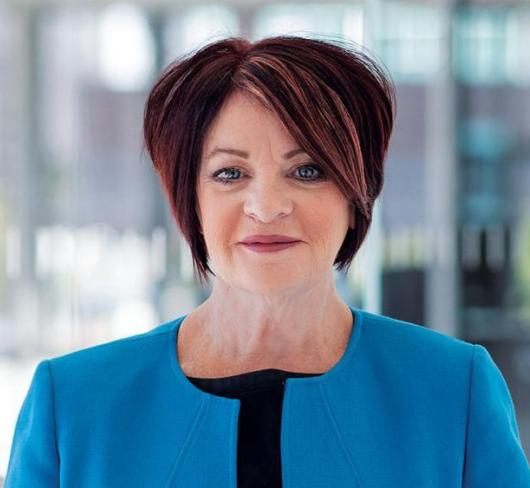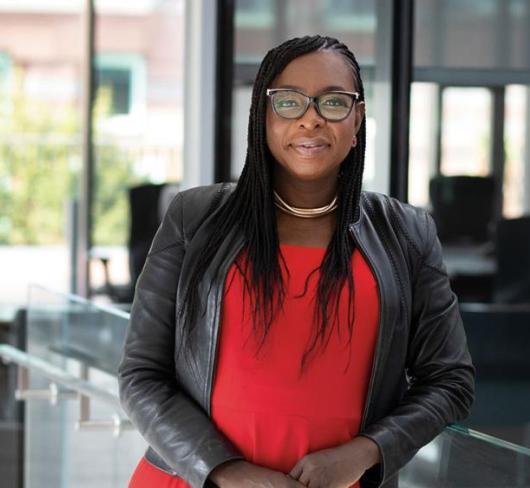Curriculum and Social Justice: Members of the Connections Writing Team Share Their Thoughts (Equity and Women's Services)
ETFO is a union whose members choose to foster a positive social transformation through education, networks, and resources. We re courageous advocates for inclusion, trust, and acceptance of difference(s). We bring hope to this vision through our own joureys of learning and the practical steps we take in our classrooms and communities each day. As we engage in dialogue and conversations that dispel myths and stereotypes, we contribute to establishing genuine pathways toward equality. Curriculum support resources are one way to begin these meaningful conversations that broaden our understanding of the diverse needs of our students.
In Teaching for Social Justice, William Ayers states:
Teaching for social justice is teaching that arouses students, engages them in a quest to identify obstacles to their full humanity, to their freedom, and then to drive, to move against those obstacles. And so the fundamental message of the teacher for social justice is: You can change the world.1
Connections: A Kindergarten to Grade Eight Resource for Everyone Interested in Understanding Gender-Related Issues and Working for Social Justice was developed to encourage and support these endeavours. The stories and activities in the resource are meant to open discussion and build understanding about a variety of issues that relate to the pursuit of social justice. Focus topics are explored through books and real-life stories.
“Who is the self who teaches?”2
Curriculum writing is often intimately connected to who we are as individuals and to the unique life experiences that shape our critical consciousness.3 As a teacher/researcher who is also a curriculum writer for social justice resources, I am in a privileged position of calling upon my own experiences with regard to social justice and equity work in schools. This dual positioning supports both the “teacher as learner” role that I hold for myself, as well as the advocacy role that I regularly participate in as a social justice activist. I am also a union staff employee with responsibilities for continuing professional development programs. I look to the diverse experiences of a writing team to improve the scope and depth of the resources we produce.
Three teachers share their thoughts about coming together to develop Connections – their vision, writing experiences, and personal fulfillment.
Arlene Campbell
“I recently took a cursory glance at my bookshelves in my home office and observed that women authors from diverse backgrounds comprised 80 percent of my collection. Why was that? I had never questioned this before, but subconsciously and perhaps of late, I gravitated toward independent smaller bookstores that endorsed ‘peripheral’ prose and academic literature. When I was growing up there was little culturally relevant material that enlivened and enlightened my intellect. I always yearned to read something, anything, that had to do with my existence as a black girl."
“When invited to collaborate on Connections, I salivated. Here was a prime opportunity to write, influence, and enrich teaching and learning for a diverse student population. It is no coincidence that this project addresses ‘Optimism’ in its final section, for that title clearly aligns with my belief that we, as educators and students, must continue to explore alternative and sometimes difficult pedagogical standpoints.”
Nilmini Ratwatte
“My vision for Connections was to bring to the resource my experience as a first-generation immigrant, my knowledge from my classroom experience, and my cultural perspective. I wanted to encourage my colleagues to insert themselves into the curriculum they teach. I wanted to find a way to engage my students to reflect on ways in which gender continues to influence and limit many decisions. Furthermore, I wanted activities that were user-friendly and were connected to curriculum mandates."
“I was surprised and gratified by the creative pieces in the book which provide a way to explore real-life stories. We had the unique opportunity to insert some of our personal stories into the book. Through the writing process I got to know my co-writers and took risks which otherwise I would not have taken. Connections gave me the opportunity to intimately share who I was through my writing, which I truly appreciate, because I think doing so resonates with students.”
Mini Dawar
“I had been taking on equity projects at my school and in my board, and was presenting ETFO workshops on equity and social justice, and when the opportunity to work on Connections came up I very much wanted to be part of it. Working on this project provided me with an opportunity to deconstruct my biases, reaffirm my beliefs, and share my perspective as an immigrant teacher. This project allowed me to reflect on my journey as an educator, share my cultural heritage, and make space for the powerful, real-life stories of women. Working with other contributors enriched my knowledge and skills as a writer. The process of discussion and writing brought many of my inner thoughts and feelings to light. I learned more about myself and my passion to promote social justice.”
The writers wish to thank our sisters who so willingly shared of themselves in their literature, politics, and other life experiences. We respectfully remember Alice Hepworth and honour her contributions to Connections.
Notes
1. William Ayers, Jean Ann Hunt, and Therese Quinn, eds. Teaching for Social Justice: A Democracy and Education Reader, new York: teachers College press and the new press, 1998, p. xvii.
2. Parker J. Palmer, The Courage to Teach: Exploring the Inner Landscape of a Teacher’s Life, San Francisco: Jossey-Bass, 1998, p. 7.
3. E. Eisner, The Educational Imagination. On the Design and Evaluation of School Programs (3rd ed.), new York: Macmillan publishing, 1994. also S. Ramrattan Smith, Pilot Study: Exploring Connections Between Teacher Identity and Curricular Practices in Social Justice Education, presentation at the Canadian Society for the Study of education, university of British Columbia, June 1, 2008.

